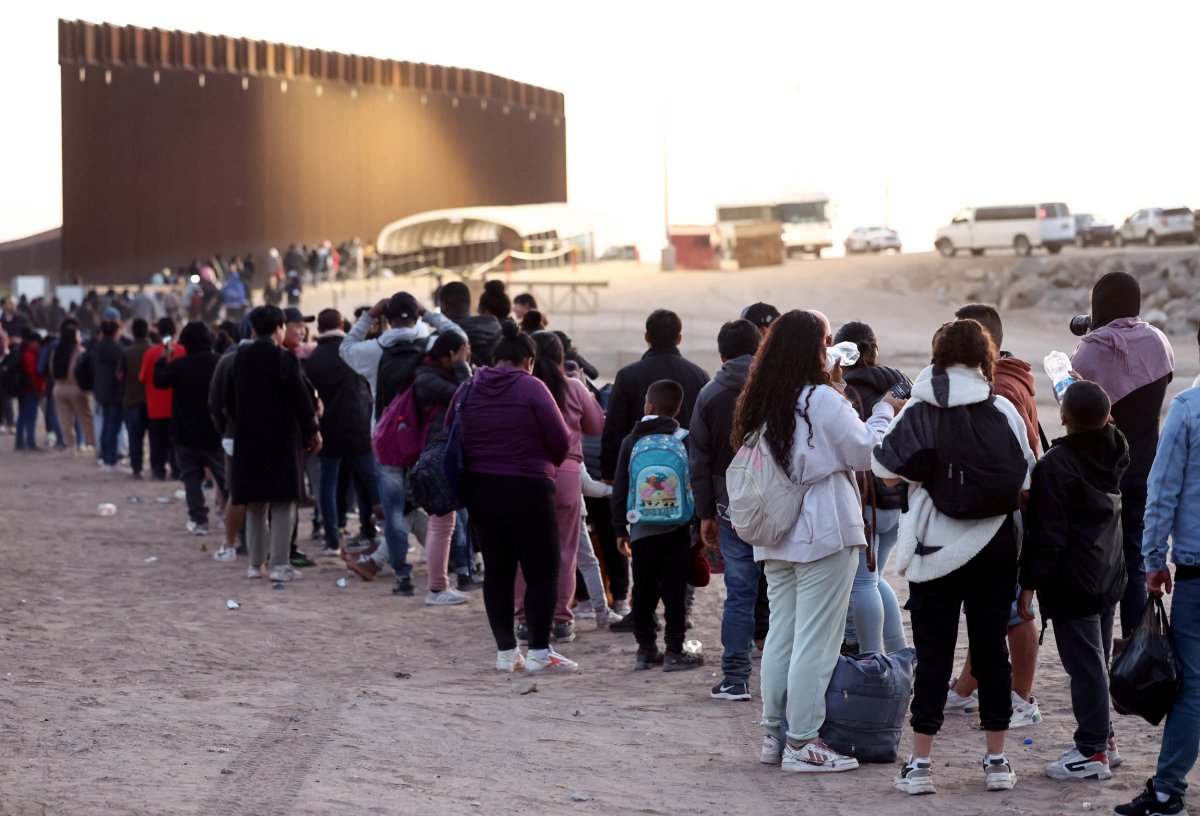For as long as I can remember, I wanted to come to the United States. I was born in Iran to Marxist–Leninists who had spent time in prison and under torture. Conceived in Marxism, I somehow became obsessed with George W. Bush's message of freedom, and I felt destined for America.
At the embassy to get a student visa, I had been instructed to assure the interviewer that I would leave after college, but the staffer didn't ask me whether I intended to stay after my studies and approved my visa on the spot without an FBI check. I know of no other Iranian who got such treatment, and I was over the moon. I had been resenting that I would have to start my American journey with a lie to the U.S. government that I respected and admired so much. I do not believe in fate, but it was fate that I did not have to lie. Or so I thought.
As soon as I had the keys to my dorm, I went to the local Target to get some essentials. Knowing that morning coffee was an Americanism, I picked up a cheap Keurig machine at Target and an American flag, which I hung over my bed; throughout college, I slept under its protection and woke up beneath it.
The school year's beginning overlapped with the height of the U.S. campaign against the Islamic State, and I was that guy—the immigrant defending American honor with a thick accent against my Lefty classmates who condemned our nation's past and Middle East adventures.
Nearly a decade later, I feel that my patriotism for this great republic that I once defended so vociferously has been deeply compromised—not by wars but by a broken immigration system that's threatening us as a nation and myself in a very real way: In December 2016, a newspaper affiliated with the Islamic Revolution's Guardians Corps published my picture on its front page and called me a traitor. The attorney general of Iran then referred my case to the district attorney for the notorious Evin Prison, leading me to apply for asylum. U.S. law requires the government to process asylum applications within 180 days. And yet, I've been waiting for a 30-minute asylum interview for seven years—thanks to a court overwhelmed by those coming through Mexico illegally, 90 percent of whom have no legitimate asylum case.

Amidst the 2014 border surge, the Barack Obama administration caused a shortage of case officers by reassigning them to do screening of border crossers. In 2018, the Department of Homeland Security reinstated a Bill Clinton administration policy casually known as Last In, First Out. Under the new regulation, those who had applied before 2018 would be processed last, with new applicants getting to go ahead of us. The idea is to deal with asylum seekers by processing their applications before they go inside the country and get lost, yet it increased the number of people ahead of me from 200,000 in 2017 to a million and a half today. Every time someone illegally crosses the border and applies for asylum, that number grows larger because more request asylum every day than what the government can process.
The asylum process was created for individuals targeted for specific reasons such as being religious minorities or political dissidents. Of course, I have enormous sympathy for those fleeing the anarchy of their societies, but the U.S. law for good reasons distinguishes between asylees and refugees. The masses who flee broken societies, be it for gang-ridden violence or war, are refugees. Many countries, including the United States, have for decades admitted them after they have resided in U.N. refugee camps and passed screening. Only someone soulless could blame people fleeing Central America's Northern Triangle where chaos reigns, but like all refugees, they too should go through the U.N. resettlement process and be resettled across many countries, not just in America.
Meanwhile, legitimate asylees like myself are footing the bill for these refugees.
I planned my life assuming that I'd have become a citizen by now or soon would be—and that I'd be able to travel internationally to meet with my family in a third country. Instead, in my mid-thirties, I am left with a dented career that requires citizenship for most jobs, no savings, and an expired passport that I can't renew and which prevents me from moving to a country whose immigration system's efficiency cannot be confused with that of Pakistan's. I have not seen my family in a decade, and, worse, was unable to see my father when he fell ill and died two years ago.
I was raised in an atheist house. My only faith was in America. I thought that America was a land of dreams, but it is where mine came to die. I left my loving family to come here—never to see them again.
They say that hope dies last, and it's true. I left everything for the hope of an American life that is now dead.
Shay Khatiri is the VP of Development and Senior Fellow at Yorktown Institute.
The views expressed in this article in this article are the writer's own.
Uncommon Knowledge
Newsweek is committed to challenging conventional wisdom and finding connections in the search for common ground.
Newsweek is committed to challenging conventional wisdom and finding connections in the search for common ground.
About the writer
To read how Newsweek uses AI as a newsroom tool, Click here.








